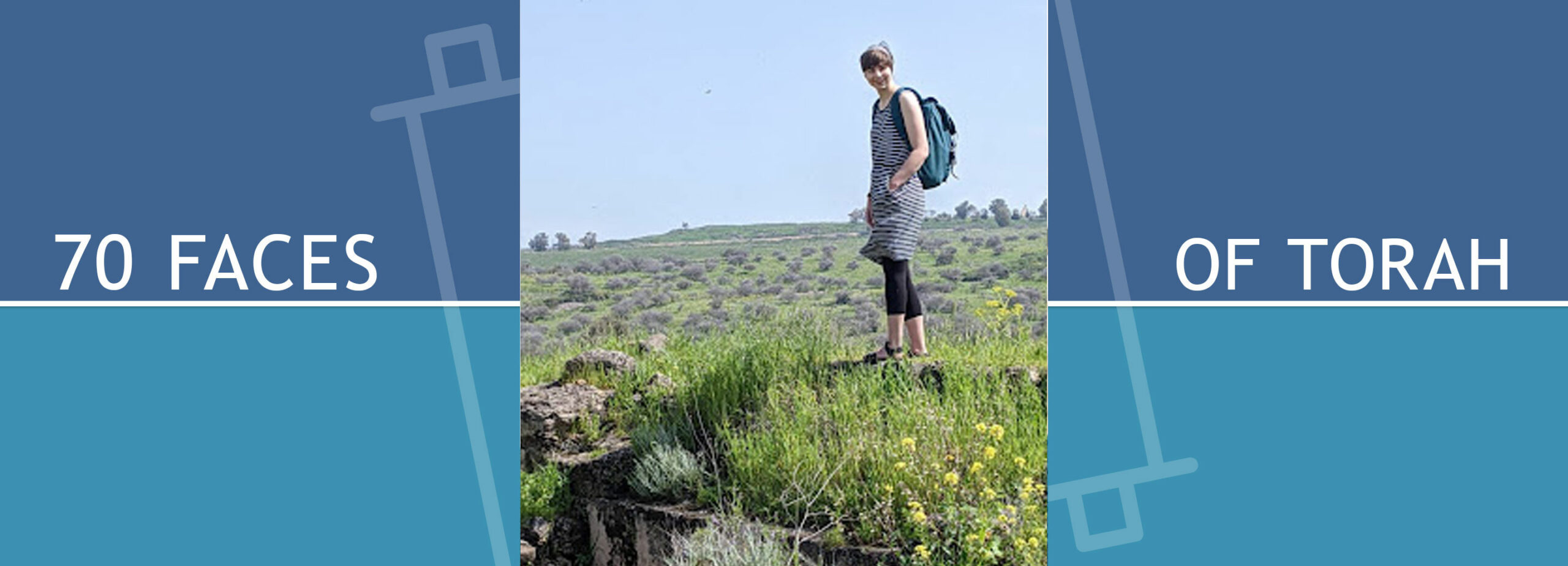Jewish learning Blessings in Winter

Parashat Chayei Sarah (Genesis 23:1-25:18)
After Sarah’s burial, the narrative of the Torah returns to Abraham.
וְאַבְרָהָם זָקֵן בָּא בַּיָּמִים וַיהֹוָה בֵּרַךְ אֶת־אַבְרָהָם בַּכֹּל
Abraham was now old, advanced in years, and God had blessed Abraham in all things (Genesis 24:1).
It seems a strange time for blessings. Abraham is bereft, in mourning for his life partner. Not only that, but Isaac, his son, has not yet married, and Abraham has no immediate prospect of continuity. Midrashic tellings note the moment of rupture, explaining the blessing by inventing daughters for Abraham or discussing their absence. How exactly has God blessed Abraham in all things now?
One chapter later the story repeats itself, and this time the turn from death to blessing appears even more stark:
וַיְהִי אַחֲרֵי מוֹת אַבְרָהָם וַיְבָרֶךְ אֱלֹהִים אֶת־יִצְחָק בְּנוֹ וַיֵּשֶׁב יִצְחָק עִם־בְּאֵר לַחַי רֹאִי׃
After the death of Abraham, God blessed his son Isaac. And Isaac settled near Beer-lahai-roi (Genesis 25:11).
Again, after death, we have blessing. Isaac is also in a moment of discontinuity, after the death of both of his parents but before settling and having children of his own. The blessing comes in a barren time, after the good of the past and before the good that is to come. And it seems to me that that is why we are told twice of blessings after death: to show that the bare winter earth is itself blessed. There is promise in that moment of change, even though things still look desolate.
I’ve recently returned to learning the chapters of Talmud that I studied in my first year of full-time Jewish studies, when I lived in New York. Every time I open my book and see my colour-coded notes, I feel a wave of nostalgia. I remember seeing the sunrise reflected off skyscrapers as I emerged from the 59th Street subway station, the smell of peppermint hot chocolate smuggled into the beit midrash in my thermos, reviewing material in the autumn leaves of Central Park at lunch. Yet alongside, I’ve felt a sense of loss. That version of myself, from before the pandemic and before a personal illness, no longer exists. No matter how I study the chapters now, I lack the enthusiasm and intensity of my former self. It has been hard to see beyond this loss to find new ways to learn.
In Octavia Butler’s Parable of the Sower, set in a post-climate crisis apocalypse, Lauren realises that for humanity to continue, they will need to acknowledge the power of change. She writes:
“Darkness
Gives shape to the light
As light
Shapes the darkness.
Death
Gives shape to life
As life
Shapes death.
The universe
And God
Share this wholeness,
Each
Defining the other.
God
Gives shape to the universe
As the universe
Shapes God.”
—Octavia Butler, Parable of the Sower
Famously, this parashah is named “The Life of Sarah,” even though Sarah dies in the first line. Her life continues to shape the story after her death; so too do Abraham and Sarah’s deaths prepare the ground for new life. The change caused by their deaths leads Abraham and Isaac to become ready to receive new blessings—new generations, new stories of the Jewish people. When we’re in the darkness, we don’t yet know how it will give shape to new light. God’s blessing is a reminder that it will.
I’m no longer the person I was in New York, who rose at six and learnt Daf Yomi on the subway. I’m older, tireder, and perhaps kinder to myself. As I return to the Rabbis’ arguments and tales, I see them differently. And I know when to close the book and find other meanings outside.
Rebecca, too, receives a blessing in this parashah. After agreeing to leave home and live with Isaac, to travel to a foreign land and marry a man she has never met, her mother and brother bless her:
וַיְבָרְכוּ אֶת־רִבְקָה וַיֹּאמְרוּ לָהּ אֲחֹתֵנוּ אַתְּ הֲיִי לְאַלְפֵי רְבָבָה וְיִירַשׁ זַרְעֵךְ אֵת שַׁעַר שֹׂנְאָיו:
And they blessed Rebecca and said to her, “O sister! May you grow into thousands of myriads; May your descendants seize the gates of their foes” (Bereshit 24:58 ).
In this moment of rupture, Rebecca’s family sees just how far she can grow. Times of change are when we need blessings most. In our own moments of doubt, I hope that our companions show us this much faith, and that we find our own faith in the hidden blessings that change can bring.
Please contact the author if you’d like to share any feedback.
Jessica Spencer is a fourth-year rabbinical student at Hebrew College, who is also learning in the Pardes Kollel and the Yashrut Institute. When not studying, she swims, reads, and muses on the best recipe for hot chocolate. She is a co-founder of Azara, a new cross-communal British yeshiva opening Jewish texts to everyone.

